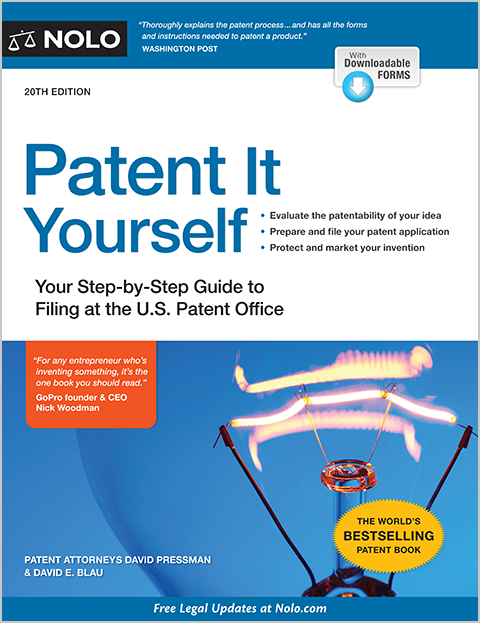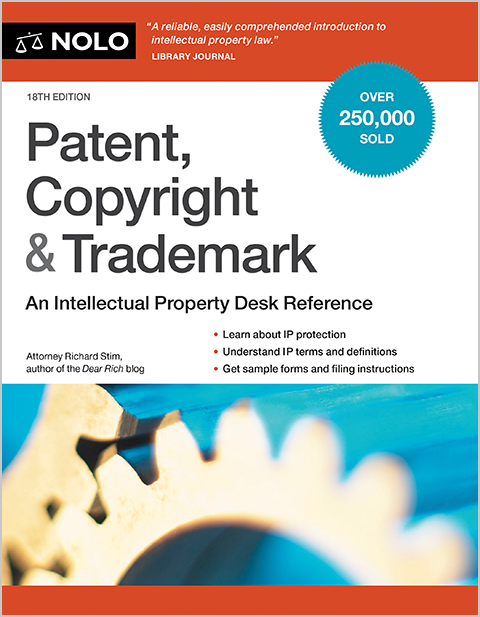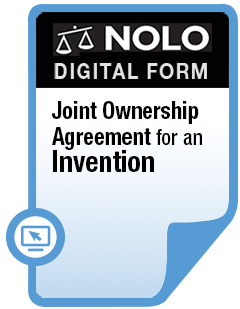How can a trademark search be performed?
If you're starting a new company or launching a new product, you'll likely want a catchy name to get your business or product noticed in the marketplace. You might want to register your brand as a federal trademark. Before you settle on a name, you should conduct a trademark search to make sure your proposed name is available to use.
In this article, we discuss using a combination of do-it-yourself and professional searching to do an economical, effective trademark search.
The Importance of a Trademark Search
Before securing a trademark, you must ensure that no other person or entity is already using it on similar products or services. For example, if you want to obtain a federal trademark on the term "Staples" for an office supplies store, you'd be out of luck. Staples, Inc. has already registered that mark. The U.S. Patent and Trademark Office (USPTO) won't allow you to obtain the same mark for the same type of business (and you'd be infringing on Staples, Inc.'s trademark if you used the name).
How can you conduct an effective trademark search to ensure another business hasn't already registered your proposed mark? Traditionally, small businesses have had two options for trademark searching:
- doing it themselves, or
- hiring a trademark attorney to do it for them.
A third option—using a professional search service—was available to big companies but not so much to small businesses. Fortunately, several online trademark search services now offer professional, affordable trademark searches for individuals and small companies.
Preliminary DIY Trademark Searches
A comprehensive trademark search includes:
- a deep dive into the federal trademark database
- possibly a search of state trademark databases, and
- a wide search for unregistered trademarks (also known as "common law trademarks").
Before committing to the time (and possibly the expense) of a comprehensive search, it's wise to do your own preliminary search. With a preliminary search, you're doing a basic sweep to look for marks that might be the same as or similar to your proposed mark. You'll need to specifically search for marks that are used on products or services that are related to your products or services. These similar or exact marks you're looking for are called "conflicting marks."
A preliminary search generally consists of:
- a knockout search (also known as a "direct-hit search") of the federal trademark database, and
- an initial internet search.
Knockout Federal Searches
A "knockout search" is a basic search of the federal trademark database using the USPTO's Trademark Search tool. In a knockout search, you search for marks (usually word marks) that are identical or very similar marks to your proposed mark and are connected to use (used with) goods or services in the same trademark classes (industries) as yours.
The USPTO database includes:
- active registered trademarks
- applied-for trademarks, and
- dead (abandoned or canceled) registered trademarks or trademark applications.
Your focus in a knockout search is on active and applied-for trademarks that conflict directly with your proposed mark—identical or very similar marks to your mark registered for the same class of goods or services as yours.
If you find such a mark, your trademark journey with this particular mark is likely over. You won't be able to register it, and you won't be able to use it without risking a trademark infringement lawsuit. In this particular conflict, your proposed mark was knocked out by an existing mark.
Preliminary Searches for Unregistered Marks
If your proposed mark survives the federal knockout search, you'll want to do a basic internet search for conflicting unregistered marks. "Unregistered marks" are marks that are being used in commerce but haven't been registered with the USPTO. Unregistered marks are important because these marks can qualify as common law trademarks with rights that can take priority over federally registered marks.
The U.S. trademark system operates on a "first to use" basis, not a "first to register" basis. The first business to use a brand in commerce in a geographic area establishes trademark rights—common law trademark rights—in the mark in that geographic area. The only requirement is being the first to use the mark—no registration or other formality is needed to create a common law trademark.
A common law trademark owner can prevent later users of the mark, including a federal trademark owner, from using the mark in the territory. For this reason, even if you're planning to register your trademark, you'll want to know whether there are any common law trademarks out there that could limit the reach of your federal mark.
A common law trademark search can be labor-intensive, but you can do your own preliminary search. Begin with a simple web search by plugging the name and the relevant product or service into your browser (for example, "Back to Deuce" and tennis equipment). Follow up with a search of online marketplace sites like Amazon and Shopify. If you're a developer of mobile apps and need to name your latest app, you'd want to search the various app stores.
This sort of preliminary search won't uncover every instance of an unregistered mark in use. But it should give you a general idea of whether your name is likely to be confused with another easily identifiable product.
Using a Professional Search Service
Suppose your preliminary searches don't turn up any clearly conflicting marks that would prevent you from using or registering your brand. In that case, you'd want to do a comprehensive search that, as noted above, would include a more in-depth USPTO search for similar marks (not just direct hits), a wide common law trademark search, and possibly a search of state trademark databases. In addition to conducting such a search, you'd need to know how to interpret the results.
Why Use a Professional Search Service?
While a lot of business owners conduct a trademark search on their own, it's also common to outsource this task. Many business owners don't have the time to sort through the dozens to potentially hundreds of marks on their own. Even if you do have the time, you might feel more comfortable using a professional service. After all, a professional search service usually uses a tested search algorithm and the results are sometimes looked over by a trademark attorney or other professional.
Several online companies offer trademark search services for a fee. Some services bundle trademark searching and registration, but many offer standalone search services.
You'll find several benefits to using a professional search service. For instance, these companies typically:
- have trademark experts (including trademark attorneys) on staff
- have proprietary databases and access to commercial trademark databases that aren't available to the general public, and
- use advanced technology, including search algorithms and, increasingly, artificial intelligence (AI) in their searches, allowing them to do very efficient, very thorough trademark searches.
Prices for search services vary from company to company, but most seem to charge in the range of $150-300 for a federal and state-registered trademark search and $300-600 for a comprehensive search (federal, state, and common law). For that money, you get the search and a search report.
Choosing a Professional Search Service
You can attempt a comprehensive search on your own, but consider using a search service if the fee is within your budget (assuming that you don't plan to hire a trademark attorney—see the next section). You'll save a ton of your own time and get a better search than you're likely to do on your own.
We suggest the following if you're looking into trademark search (or search and registration) services.
- Go with a reputable service. We don't endorse any trademark search services and we won't identify any as being scams, but some services have solid reputations while others don't. LegalZoom, Markify, and TradeMark Express are among the best-rated services, but others might do a good job for you. Read customer reviews and independent reviews of any service you're considering.
- Be clear on the scope of the search. As noted above, a comprehensive search should include the USPTO database, possibly state trademark databases, and places where common law trademarks can be found. Pay particular attention to the scope of a company's common law trademark search. Where will the search company look for conflicting common law trademarks? Make sure you also understand what searches are included at different price levels (or in different search-and-register packages) and that you're confident the search will be sufficiently comprehensive for your needs.
- Understand how the company conducts its searches. A good search (or search and registration) service balances technology and human expertise. If it's not clear from the website, ask whether the search will be conducted or at least overseen by a trademark attorney. If a trademark attorney will be involved, ask exactly what the attorney will be doing and whether those services are fully covered by the quoted price for the search. (Some search services are owned by law firms but operate separately from the law practice. Other search services are reputed to exist primarily as lead generators for the firm's attorneys, which probably isn't what you want from a search service.) Also, try to understand the technology that the company uses in its searches. Better technology probably leads to better searches, so long as the company isn't overly reliant on the technology (again, look for a balance of technology and human expertise).
- Make the company be specific about what will be included in and with your search report. At a minimum, your search service should provide a search report that identifies potentially conflicting marks. Some search reports simply list such marks, leaving it up to you (or your attorney) to analyze the results—to decide whether a conflict between your mark and a found mark would likely lead to consumer confusion and thus present an obstacle to your registration and use of the mark. Other services include a likelihood of confusion analysis in their search reports. (If you're using a bundled search-and-registration service, confirm that you'll receive a search report and that the company will help you determine whether it makes sense to proceed with registration based on the search results.) Additionally, have deadlines for completing the search and delivering the search report, and stay on top of the company if those deadlines slip.
- Know exactly what you'll be charged. With a reputable search service, you can be confident that the price is the price, with no hidden fees, and that you won't be pressured to buy additional services that you neither need nor want. Be wary of "free" and deeply discounted searches that are designed to lure you in, only to hit you with add-ons that drive the price up (thereby revealing the true cost of the service).
Using an Attorney to Handle Your Search and Registration
Your third option for a trademark search, in addition to doing it entirely on your own or using an online trademark service, is to hire an attorney to handle your trademark registration. The attorney will usually:
- conduct a trademark search (although many law firms use outside search services)
- advise you on whether to proceed with registration
- prepare and file your federal application, and
- deal with the USPTO through the examination process.
Trademark attorneys can charge hourly rates that reach several hundred dollars. Though you'll more likely come across lawyers who charge a flat fee for a search and registration. The flat fee can vary, but most fall in the $1,000-$3,500 range.
If you work with a flat-fee attorney on your registration, make sure that you and the lawyer are very clear on what the flat fee covers. For example, many flat fee arrangements allow for a certain amount of back-and-forth with the USPTO on an application. This back-and-forth comes in the form of Office Actions (requests for additional information or conditional rejections) from the USPTO and responses from the applicant or their attorney (called "Responses to Office Actions"). Your lawyer's flat fee might cover two Responses to Office Actions. After that, if additional responses are required, the time for those responses will likely be billed hourly.
What do you get in return for your trademark lawyer's fees? Good trademark lawyers understand the ins and outs of trademark law and the USPTO application review process. Their expertise helps in:
- analyzing trademark search results to evaluate whether any existing marks conflict with your proposed mark
- properly preparing your application so that it not only meets the technical filing requirements of the USPTO but will also give you the protection (coverage) you need if the mark is accepted for registration, and
- navigating the trademark examination process (especially overcoming trademark examiner objections to your mark).
Once your mark is registered, your lawyer can help you maintain the registration through renewal filings and by advising you on how to use the mark to maximize its enforceability. And if someone else starts using your mark, your lawyer can represent you in the infringement dispute.
Do the benefits of using a trademark lawyer justify the cost? Only you can answer that question for your business and your mark. A trademark lawyer can help you avoid missteps with your trademark registration, assistance that could spell the difference between a successful registration and a USPTO rejection. If the mark is critical to your business and you can afford the legal fees, consider using a trademark attorney to handle your search and registration.
Between online trademark search and registration services and flat fee trademark lawyers, you have alternatives to handling things completely on your own. Decide which approach works best for your business.
Talk to a Lawyer
Need a lawyer? Start here.
How it Works
- Briefly tell us about your case
- Provide your contact information
- Choose attorneys to contact you
- Briefly tell us about your case
- Provide your contact information
- Choose attorneys to contact you



